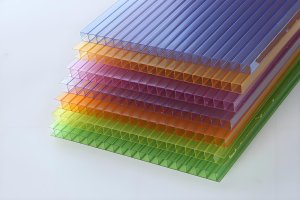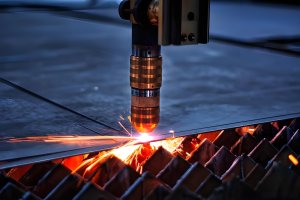Introduction to CNC Machining and Its Importance in Food Automation
Computer Numerical Control (CNC) machining represents a critical technology in modern manufacturing, noted for its precision, efficiency, and adaptability. This technology’s role is particularly pivotal in the production of components for food automation machinery, where the margin for error is minimal due to the stringent hygiene and efficiency requirements.
CNC machining processes such as milling, turning, and drilling allow for the creation of parts with extremely tight tolerances and complex shapes, which are often required in food processing equipment. The importance of CNC machining in this field cannot be overstated, as the quality of the components directly influences the overall reliability and performance of the machinery. For instance, sealing rings must fit perfectly to prevent any leakage that could lead to contamination or machinery failure, which in food processing, could have dire health and business implications.
Additionally, the ability of CNC machines to work with a variety of materials—from metals to plastics and composites—is essential for producing parts that meet the diverse needs of the food industry. These materials must not only withstand the mechanical demands of high-speed operations but also comply with regulatory standards for food safety, which include resistance to corrosion, non-toxicity, and ease of cleaning.
As we move forward into a more automated and precise era of food production, the reliance on CNC technology only grows. The evolution of CNC machinery, incorporating more advanced computer algorithms and automation, allows for even greater precision and efficiency, which is indispensable for meeting the rising global demand for food products and the industry’s increasing safety standards.
What Are the Technical Specifications Necessary for CNC Sealing Rings?
When it comes to CNC machining of sealing rings for food automation machinery, understanding and specifying the right technical specifications is crucial. These specifications typically include the material type, dimensions, tolerance levels, and hardness of the rings, which need to be meticulously defined to ensure optimal performance and compliance with food safety regulations.
Dimensions are critical because they ensure that the sealing ring fits precisely within the machinery. The exact size and shape of the ring must match the designated space to avoid any gaps that could lead to leaks. The tolerance levels specify how much deviation from the exact dimensions is acceptable, which in the case of sealing rings, is typically very low to prevent operational failures.
Material hardness is another vital specification. It determines the durability and wear resistance of the sealing ring, affecting how well it can maintain an effective seal under the mechanical stress and varying temperatures encountered in food processing environments. For example, a softer material may be required where flexibility is necessary, whereas a harder material may be preferable for abrasive conditions.
To illustrate the importance of these specifications, consider a CNC machined sealing ring used in a high-pressure food processing scenario. If the ring’s dimensions are off by even a small margin, it could lead to leaks under pressure, compromising the machinery’s integrity and the safety of the food products. Similarly, if the material chosen does not conform to the required hardness, the ring may wear out more quickly than anticipated, leading to frequent replacements and potential downtime.
How Does Material Selection Impact the Quality of CNC Machined Sealing Rings?
The selection of material for CNC machined sealing rings is a critical decision that directly impacts their quality, functionality, and compliance with food safety standards. Different materials offer varying levels of resistance to chemicals, temperatures, and wear, which must be carefully considered to ensure the sealing rings can withstand the specific conditions of food automation machinery.
Case Study: In the dairy industry, sealing rings are subjected to frequent cleaning with harsh chemicals and exposure to both high and low temperatures. A comparison between silicone and PTFE (Polytetrafluoroethylene) sealing rings shows significant differences in performance. Silicone rings, while more flexible and better at handling thermal expansions, may degrade faster under strong acidic or basic cleaning agents compared to PTFE, which offers exceptional chemical resistance and thermal stability.
Data Table:
| Material | Chemical Resistance | Thermal Resistance | FDA Compliance | Wear Resistance |
|---|---|---|---|---|
| Silicone | Good | Excellent | Yes | Moderate |
| PTFE | Excellent | Excellent | Yes | High |
| EPDM | Very Good | Good | Yes | Good |
| Nitrile | Moderate | Good | Conditional | Moderate |
| Viton | Excellent | Good | Yes | Very High |
| Urethane | Poor | Moderate | No | Very Good |
| Neoprene | Good | Moderate | Yes | Good |
This section explores not only the properties of materials but also their suitability for various applications within food processing environments. The right material choice ensures the sealing ring performs as expected, reducing maintenance costs and avoiding food contamination risks.
Evaluating Precision and Tolerance in CNC Machining: Why Does It Matter?
Precision and tolerance are not just technical terms; they are crucial factors that determine the efficacy of CNC machined parts, especially sealing rings, in food automation machinery. High precision and strict tolerance levels are vital to ensure that these components fit perfectly within the machinery, maintaining an effective seal and preventing any potential leaks that could compromise food safety.
In the context of CNC machining, precision refers to the machine’s ability to consistently produce parts that closely match the designed specifications. Tolerance relates to the allowable variation in the dimensions of a part. For sealing rings, low tolerance is essential to ensure a tight fit, as even minor deviations can lead to significant issues.
The significance of achieving high precision and low tolerance can be illustrated through an example involving a high-speed bottling line. If the sealing rings in the bottling machinery have slight variances beyond the low tolerance threshold, it could lead to improper sealing of the bottles, resulting in product spillage and contamination, thereby affecting product quality and safety.
To assess a supplier’s capability in this area, it is important to look at their machinery and technology. Advanced CNC machines with the capability to operate on multiple axes can produce complex shapes with high precision. Also, the use of quality control measures like real-time monitoring and post-production inspections ensures that the parts meet the required standards.
Assessing the Supplier’s Compliance with Industry Standards
Compliance with relevant industry standards is a critical factor in selecting a CNC machining supplier, especially in sectors like food processing where safety and hygiene are paramount. These standards help ensure that the products are safe, reliable, and of high quality. Key standards include ISO (International Organization for Standardization), ASTM (American Society for Testing and Materials), and FDA (Food and Drug Administration) regulations for food contact materials.
Case Study: A notable instance involves a food processing company that faced regulatory issues due to non-compliance of sealing rings with FDA standards. The CNC supplier had not adequately followed the specifications for food-grade materials, leading to contamination risks and subsequent recalls. This case underscores the importance of ensuring that suppliers not only understand but strictly adhere to such standards.
Standards compliance can be verified through certifications that the supplier holds, such as ISO 9001 for quality management systems. Regular audits and third-party inspections are also critical in maintaining these standards, providing an objective assessment of the supplier’s adherence to the required guidelines and practices.
How Can You Verify the Supplier’s Quality Control Processes?
Quality control is the backbone of manufacturing, ensuring that every product not only meets design specifications but also consistently performs its intended function without failure. Verifying a supplier’s quality control processes involves understanding their procedures for monitoring and testing products at various stages of production.
Case Study: An example of effective quality control can be seen in a supplier specializing in the production of sealing rings for beverage bottling plants. The company implements statistical quality control (SQC) techniques, including regular sampling and testing of products at each production shift. This proactive approach has led to a significant reduction in defect rates and increased customer satisfaction.
Data Table:
| Process Step | Inspection Method | Frequency | Acceptance Criteria | Resulting Action if Failed |
|---|---|---|---|---|
| Raw Material In | Visual & Chemical Test | Each Batch | Spec Compliance | Rejection/Return to Vendor |
| Machining | Dimensional Check | Every 10 Units | Within Spec | Recalibrate/Reject |
| Post-Machining | Functionality Test | Every 100 Units | 100% Functionality | Repair/Redo |
| Final Inspection | Full Quality Check | Each Batch | 100% Spec Compliance | Final Acceptance/Reject |
The Role of Advanced Technology and Equipment in CNC Machining
The integration of advanced technology and equipment in CNC machining significantly enhances the capabilities of manufacturing operations, particularly in achieving high precision and operational efficiency. These technological advancements are crucial in producing components like sealing rings, where exact specifications and high reliability are mandatory.
Advanced CNC Technologies
Multi-axis CNC Machines: These machines offer enhanced flexibility and precision by operating on five or more axes simultaneously. This capability allows for the creation of complex, intricate shapes without sacrificing precision, which is particularly important for custom-designed sealing rings used in specialized food automation machinery.
Laser Cutting Machines: Employing high-precision laser beams, these machines provide superior accuracy and consistency. They are ideal for cutting hard materials or for creating precise cuts and engravings on sealing rings, ensuring that every product matches the exact dimensions required.
Automated Quality Control Systems
Modern CNC facilities often incorporate automated quality control systems that utilize sensors, cameras, and other measuring devices to continuously monitor the machining process. These systems detect any deviations from the specified measurements in real-time and automatically adjust the process or alert operators. This immediate feedback loop significantly reduces the risk of defects, ensuring that each sealing ring meets stringent quality standards.
Data Table:
| Technology | Functionality | Impact on Production |
|---|---|---|
| Multi-axis CNC Machines | Simultaneous multi-directional machining | Enables complex geometries, improves precision |
| Laser Cutting Machines | High-precision cutting and engraving | Increases accuracy, reduces material waste |
| Automated QC Systems | Real-time monitoring and adjustments | Enhances product consistency, reduces defects |
| 3D Printing Technology | Rapid prototyping and customization | Accelerates development, tests designs efficiently |
Impact on Sealing Ring Production
The use of these advanced technologies in CNC machining not only improves the quality and consistency of sealing rings but also optimizes the production process. For example, the ability to rapidly prototype designs with 3D printing allows for quick testing and refinement, which is invaluable in developing new products for the food industry. Similarly, multi-axis machining and laser cutting enhance the ability to produce complex and highly customized sealing ring designs that meet specific requirements of different food processing machines.
In conclusion, the role of advanced technology and equipment in CNC machining is pivotal. It directly influences the quality, reliability, and cost-effectiveness of manufacturing sealing rings and other critical components for food automation machinery. By leveraging these technological advancements, CNC suppliers can provide their clients with superior products that meet both current and future needs of the dynamic food industry.
Conclusion and Strategic Recommendations for CNC Supplier Evaluation
In the complex world of CNC machining for food automation machinery, particularly for critical components like sealing rings, the selection of a CNC supplier is not merely a transaction—it’s a strategic decision. This comprehensive evaluation not only encompasses the technical capabilities and equipment sophistication but also delves into the supplier’s adherence to quality standards and regulatory compliance.
For businesses in the food processing industry, here are some strategic recommendations to ensure a thorough evaluation of potential CNC suppliers:
- Prioritize Precision and Compliance: Always check that the supplier’s capabilities align with the need for high precision and adherence to food safety standards. This includes verifying machinery capabilities and the materials used for production.
- Audit Quality Control Processes: Conduct regular audits of the supplier’s quality control measures. This could involve site visits, reviewing QC documentation, and checking compliance with industry standards like ISO and FDA.
- Review Technological Advancements: Assess the supplier’s technology stack to ensure it meets current industry standards for efficiency and precision. Advanced technology is often synonymous with better quality, fewer errors, and more consistent production.
- Engage in Long-Term Partnerships: Consider suppliers willing to engage in long-term commitments, suggesting a reliance on continuous improvement and stable supply chains. These relationships can provide better assurance of consistent quality and service.
- Solicit Feedback from Current Clients: Request testimonials and case studies from existing clients of the supplier. This real-world feedback can provide invaluable insights into the supplier’s reliability and performance.
- Implement Continuous Improvement and Monitoring: Once a supplier is selected, the work isn’t over. Continuous monitoring and feedback loops should be established to ensure that quality remains high and any potential issues are addressed proactively.
By following these strategic recommendations, companies can make informed decisions that will ensure their food automation machinery operates at peak efficiency with high-quality components, such as CNC machined sealing rings, thereby safeguarding their production processes and ultimately, their products.
Other Articles You Might Enjoy
- What Makes Chinese CNC Machining Ideal for Producing Food Automation Machinery Shafts
Introduction to CNC Machining in China China's prowess in manufacturing has grown significantly, with CNC machining at the forefront of its industrial capabilities. CNC (Computer Numerical Control) machining is a…
- What Impact Does Choosing China CNC Machining Service Have on the Durability and Reliability of Support Parts in Food Automation Machinery?
Precision Engineering: The Bedrock of Reliable Support Parts In the world of food automation machinery, the reliability and efficiency of the equipment are paramount. At the heart of this reliability…
- How Does China CNC Machining Service Address the Challenges of Specialty Alloys in Food Automation Machinery?
Introduction to CNC Machining and Specialty Alloys CNC (Computer Numerical Control) machining stands as a cornerstone in modern manufacturing, offering unparalleled precision and efficiency. In China, where manufacturing capabilities are…






